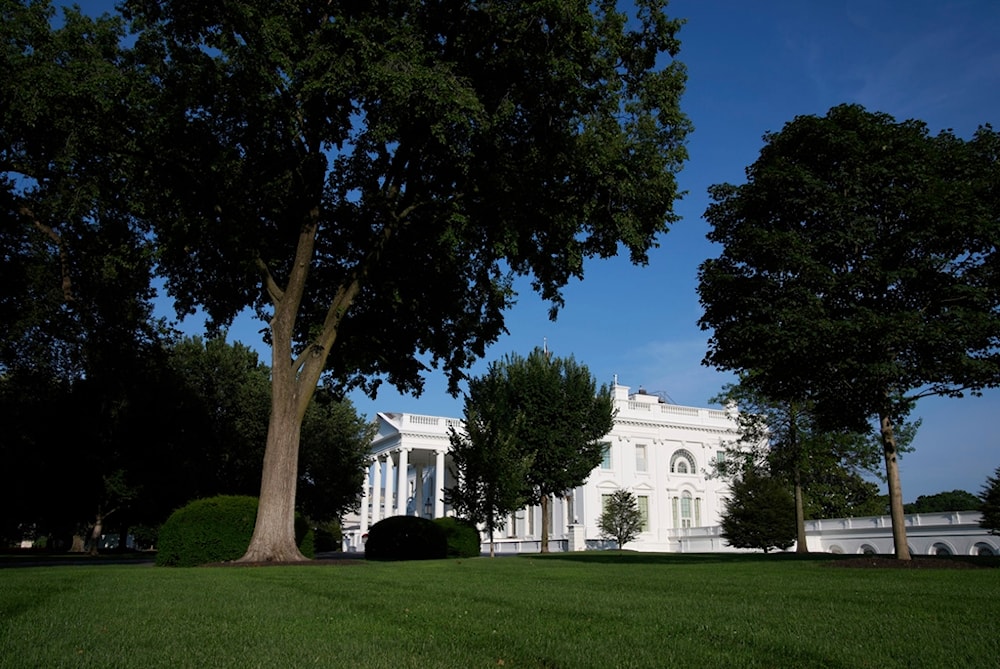Trump admin tightens secrecy amid leaks
Officials across federal agencies have shifted to encrypted communication and offline meetings as paranoia intensifies within the executive branch.
-

The White House is photographed in the early evening, Monday, June 23, 2025, in Washington. (AP Photo/Jacquelyn Martin)
Facing a wave of internal anxiety over leaks and growing criticism of recent military actions, US President Donald Trump's administration has adopted increasingly secretive operational practices. According to a detailed The Washington Post investigation published Sunday, officials across federal agencies have shifted to encrypted communication and offline meetings as paranoia intensifies within the executive branch.
The report, based on interviews with more than 40 current federal employees, describes a culture where Signal, an encrypted messaging app with auto-delete features, has become the preferred tool for both official and informal conversations. "No one puts anything in writing anymore," one source said. Even routine meetings now take place in person and, weather permitting, outside, away from phones and digital devices.
Secrecy surge
This growing climate of secrecy follows a series of damaging leaks, including those linked to polygraph testing at the Department of Homeland Security and classified military intelligence at the Pentagon. The most recent controversy involves assessments leaked to CNN and The New York Times suggesting that the June US airstrikes on Iranian nuclear facilities failed to meaningfully damage Iran's capabilities, contradicting the Trump administration's public narrative.
According to CNN's Natasha Bertrand, the strikes "set back" Iran's nuclear program by only a few months. The New York Times also reported that key facilities remained intact, their underground infrastructure untouched. In response, Trump accused the outlets of spreading "misinformation" and demanded that Bertrand be fired. "The US strikes sealed off entrances but did not collapse Iran's nuclear facilities," the reports noted.
Read more: Trump demands CNN reporter be fired for revealing Iran strike failure
Leak crackdown
The administration is now preparing a crackdown on staff suspected of leaking sensitive material. White House Press Secretary Karoline Leavitt declared, "Those who leak classified information to the media, such as the recent intelligence assessment concerning US strikes on Iran, should be subject to imprisonment."
Further escalating concerns, earlier revelations exposed that Trump officials, including top Defense and State Department appointees, had used a secure Signal group chat (nicknamed "Signalgate") to plan military operations. The group accidentally included a journalist, triggering an internal review and prompting accusations of mishandling national security protocols.
While Trump has continued to promote what he calls a "decisive victory" against Iran, intelligence leaks and mounting skepticism from the press and within his own administration reveal a more complex reality. Critics say that the heightened secrecy reflects a growing intolerance for dissent and a broader effort to insulate the presidency from both legal scrutiny and public accountability.

 3 Min Read
3 Min Read








